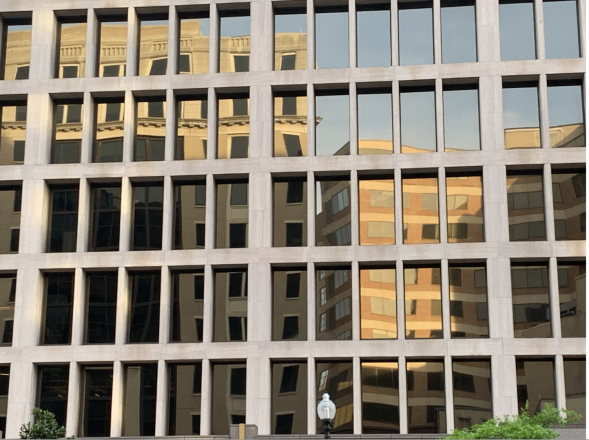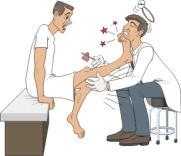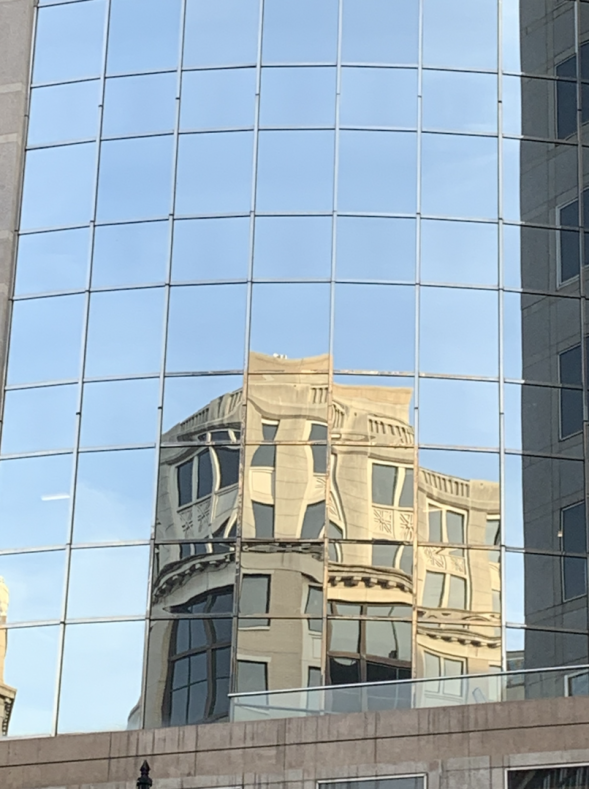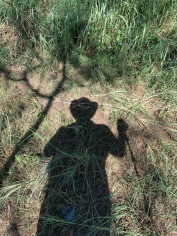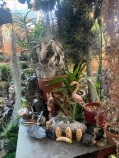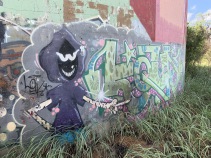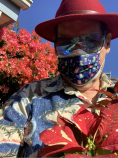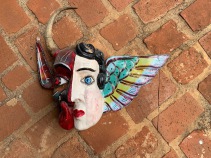"The Reflexes"
Kinesthetic Call and Response
11 Feb 2023. Starting a new chapter to think and write about the reflexes. What exactly are they?
Reflex: early 16th century (as a noun denoting reflection): from Latin reflexus ‘a bending back’, from reflectere ‘bend back’ (see reflect).
Reflect: late Middle English: from Old French reflecter or Latin reflectere, from re- ‘back’ + flectere ‘to bend’.
In physiology, a reflex is an action that is performed as a response to a stimulus and without conscious thought.
If you desire a review of the standard physiologic (neurologic) conept of the "reflex arc" I recommend this detour to Physiopedia.
This images amusingly illustrates the sort of thing the word reflex brings to mind. I found this on a blog by someone going by the handle Sagar. He has an interesting reflection on reflexes. You may tug on this thread and follow it over there (but hold on to the thread so you don't get lost; let Ariadne lead you back.
So, why don't you use it? Try not to bruise it Buy time, don't lose it
. . .
Oh, the reflex, what a game, he's hiding all the cards The reflex is in charge of finding treasure in the dark
––DURAN DURAN The Reflex
Any forced correction would not be a lasting correction.
––ARTHUR PAULS The History & Philosophy of Ortho-Bionomy®
[I was talking the other day to Cathy Krenicky (currently president of SOBI). I mentioned I was writing about the Phases. She suggested I next take on the Reflexes. "Nobody seems to really know what that's about, certainly not what we usually think when we talk about reflexes," she said.]
Elsewhere we have noted Arthur Pauls's preoccupation with the symbolism embedded in the number seven. He used it primarily as a pointer to the realm of metaphysics. So of course it was necessary for there to eventually be Seven Reflexes.
One topic I hope to get to is related to the significance of the gesture (as well as the glance). Most of Pauls Reflexes are gestural in nature.
One thing is clear, the Reflexes became central in Pauls's thinking and practice. Proof of that is seen in his book (P&H). The seventh chapter is "The Seven Reflexes." It is in the very center of the book and is roughly one-third of the book. I don't know if he planned it that way or if it 'just happened'. If the latter is the case then that makes an even stronger argument for their importance to him.
Even though the Refles came late in the game, particularly for there to be a set of seven, 'reflex' was a word Pauls was early enamored of. Ortho-bionomy was first named "Phased Reflex Techniques.
As a teacher, Pauls was obdurately vague and evasive. If anyone was able to get a clear statement from him as t why he chose to call these maneuvers "Reflexes" and what he meant by that word it was not in my presence and not to my knowledge recorded.
The methods of Ortho-Bionomy are broadly classified (in osteopathy) as "indirect methods."
The notion of "indirect methods" calls to mind "reflective measures" of research methods.
There are formative variables and reflective variables.
Interestingly, Positional Release Techniques (which many erroneously––and understandably––conflate with Phase Four of Ortho-Bionomy) are based on a 'simple' spinal reflex arc involving the intrafusil fibers of muscles, the "stretch reflex." This is reflected in the first named Reflex, Rebound (and perhaps its twin, Recoil).
